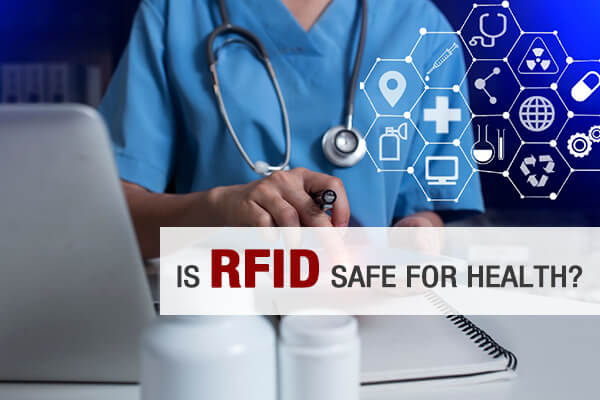The RFID system has been embraced largely by various organizations as it uses electromagnetic fields to automatically identify and track tags attached to objects, making inventory tracking and access control easier. The RFID system can be found in tags and smart cards. Due to its growing usage, there has been a concern about whether RFID is bad for health. In this article, we will shine the light concerning RFID and health.
Is radiation safe for human health?
RFID is a form of wireless communication that uses radio waves to transmit signals that activate the RFID equipment. Even though you are exposed to RFID items, either a card or tag, for a long period there will not be negative consequences of health according to studies conducted by the World Health Organization (WHO) and many other organizations. Items containing RFID are safe when it comes to constant exposure or long-term usage.
RFID technology in health care
RFID technology has been embraced largely in the health care industry. With RFID technology, there is more effective use of laboratory and specimens results, surgical and medical equipment as the technology allows easier locating and tracking within healthcare facilities. The technology improves stock rotation and recalls to ensure that the right medicine, in the right dosage, is given to the right patient at the right time. RFID reduces incidents of mistaken identity during critical surgery as it increases safety during operations by ensuring all surgical equipment is accounted for. RFID technology takes pride in its ability to call up data from patients’ files, accurately and instantly. Patients who need extra care (Alzheimer’s disease patients) can be easily located. The technology is also being used to improve the flow and reduction in wait times and enhance patient registration and management processes at hospitals through increased data availability.
Pros of using RFID in the health care industry
Healthcare providers are recognizing the benefits of adopting RFID technology into their operations. The technology provides real-time or immediate tracking and management of the hospital staff across all types of patient care environments. Also, in the labs, RFID technology offers real-time traceability of every pallet of medication or every blood sample as well as real-time visibility into the inventory. RFID proximity cards can be linked to users within a hospital’s database providing secure access to privately printed jobs. Also, throughout the supply chain RFID technology can be used in the hospital to monitor the temperature of heat-sensitive drugs and take the necessary measures to maintain standards and compliance. To manage highly mobile assets including patient beds and wheelchairs that typically don’t have a permanent station, an active RFID can be used to enable real-time tracking of their location at all times, as it’s in constant communication with tags. In areas where WiFi is not available, a passive RFID tag can track assets as they are small, low-cost, and can be easily attached to small devices. A battery-powered, active RFID such as infrared and ultrasound is equipped with an infrastructure that leverages WiFi to communicate data to healthcare systems like asset management applications and EMRs. Basic RFID is used to track patients for anti-abduction and anti-elopement programs. The RFID technology combats the counterfeiting of medical products and also tracking pharmaceuticals, tracking and matching blood transfusions.
.png)
